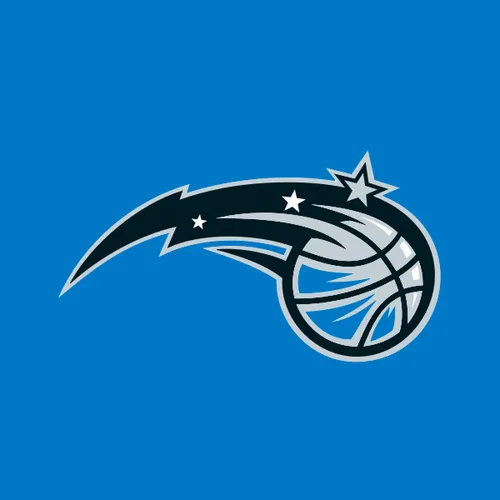







Intermediate-level Jobs in the Sports Industry: The Ultimate Quick Guide

Introduction
With 2-5 years of professional experience under your belt, you're now poised to take on more responsibilities and advance your sports career with Rebound. At the intermediate level, job roles become more specialized, and you'll need to demonstrate a strong skill set and industry knowledge to stand out. This guide will help you explore the various intermediate-level opportunities in the sports industry and provide insights into career advancement.
Intermediate-Level Job Roles in the Sports Industry
Sports Marketing Specialist: Develop and execute marketing campaigns to promote sports teams, events, or products. Requires creativity and knowledge of marketing channels. Estimated salary: $45,000–70,000 USD per year.
Sports Data Analyst: Analyze performance data to help inform coaching decisions and improve athlete performance. Requires strong analytical and statistical skills. Estimated salary: $50,000–80,000 per year.
Team Operations Coordinator: Manage the logistics and day-to-day operations of a sports team, including travel, equipment, and scheduling. Requires strong organizational skills. Estimated salary: $40,000–60,000 USD per year.
Sponsorship Coordinator: Identify and secure sponsorship deals for teams, athletes, or events. Requires excellent communication and negotiation skills. Estimated salary: $45,000–$75,000 USD per year.
Community Relations Manager: Develop and manage community outreach programs and initiatives for sports organizations. Requires strong interpersonal and project management skills.Estimated salary: $45,000–70,000 USD per year.
Sports Event Planner: Plan and coordinate sports events, from small-scale competitions to large tournaments. Requires excellent organizational and multitasking abilities.Estimated salary: $40,000–65,000 USD per year.
Sports Journalist: Cover sports news and events through various media platforms, including print, broadcast, and digital. Requires strong writing and storytelling skills. Estimated salary: $35,000–70,000 USD per year.
Sports Videographer: Capture and edit sports footage for broadcast, marketing materials, or online platforms. Requires strong video production skills and a keen eye for detail. Estimated salary: $40,000–65,000 USD per year.
Sports Social Media Manager: Manage and grow the social media presence of sports organizations, teams, or athletes. Requires excellent communication and content creation skills. Estimated salary: $40,000–60,000 USD per year.
Sports Performance Coach: Develop and implement training programs to improve athlete performance. Requires knowledge of sports science and coaching techniques. Estimated salary: $40,000–70,000 USD per year.
Sports Ticket Sales Manager: Oversee ticket sales strategies and operations for sports events or organizations. Requires strong sales and management skills. Estimated salary: $45,000–75,000 USD per year.
Sports Graphic Designer: Create visual materials, such as logos, promotional materials, and digital content, for sports organizations or events. Requires strong design and software skills. Estimated salary: $40,000–65,000 USD per year.
Sports Legal Counsel: Provide legal advice and representation for sports organizations, teams, or athletes. Requires a law degree and knowledge of sports law. Estimated salary: $70,000–150,000 USD per year.
Sports Public Relations Specialist: Manage media relations and develop PR strategies for sports organizations, teams, or athletes. Requires strong communication and networking skills. Estimated salary: $40,000–70,000 USD per year.
Sports Facility Coordinator: Assist with the management and maintenance of sports facilities, ensuring proper usage and safety. Requires strong organizational and customer service skills. Estimated salary: $35,000–55,000 USD per year.
Sports Nutritionist: Advise athletes on dietary needs and strategies to optimize their performance and health. Requires a degree in nutrition or a related field. Estimated salary: $45,000–75,000 USD per year.
Sports Equipment Manager: Oversee the inventory, maintenance, and distribution of sports equipment for teams or organizations. Requires strong organizational and management skills. Estimated salary: $35,000–60,000 USD per year.
Sports Broadcasting Producer: Produce live or recorded sports broadcasts, managing the technical and creative aspects of the production. Requires strong communication and technical skills. Estimated salary: $50,000–80,000 USD per year.
Sports Licensing Coordinator: Manage the licensing of sports merchandise, ensuring compliance with brand guidelines and contractual obligations. Requires strong attention to detail and negotiation skills. Estimated salary: $40,000–65,000 USD per year.
Sports Human Resources Specialist: Manage HR functions for sports organizations, including recruiting, onboarding, employee relations, and performance management. Requires a strong understanding of HR practices, excellent interpersonal skills, and the ability to handle sensitive information. Estimated salary: $45,000–70,000 USD per year.
Skills and Educational Backgrounds
As you advance in your sports career, it's essential to develop specialized skills and expertise. Some common skills and educational backgrounds required for intermediate-level roles include:
Strong communication and interpersonal skills
Project management and organizational skills
Analytical and problem-solving skills
Leadership and team-building abilities
A bachelor's degree in a relevant field, such as sports management, marketing, communications, or data analytics
Professional certifications or specialized training in your chosen area of expertise
Tips for Advancing in the Sports Industry
Networking: Building relationships with professionals in the sports industry is crucial for career advancement. Attend industry events, join professional organizations, and connect with peers and mentors on social media platforms like LinkedIn.
Continuous learning: Stay up-to-date with industry trends, best practices, and new technologies. Consider enrolling in courses, workshops, or obtaining professional certifications to enhance your skill set and make you a more valuable candidate.
Tailor your resume and cover letter: Customize your application materials for each job opportunity, emphasizing your most relevant skills, experiences, and accomplishments for the specific role.
Prepare for interviews: Research the company and role, practice answering common interview questions, and be ready to provide examples of your achievements and how you've overcome challenges in your career.
Set clear career goals: Identify your long-term career objectives and develop a plan to achieve them. This may involve seeking out new experiences, additional education, or opportunities for professional growth.
Conclusion
Intermediate-level opportunities in the sports industry provide a chance for professionals with 2-5 years of experience to advance their careers and take on more specialized roles. By developing strong skills, expanding your network, and staying informed about industry trends, you'll be well-positioned to make the most of these opportunities and continue on a successful career path in the sports industry.



























